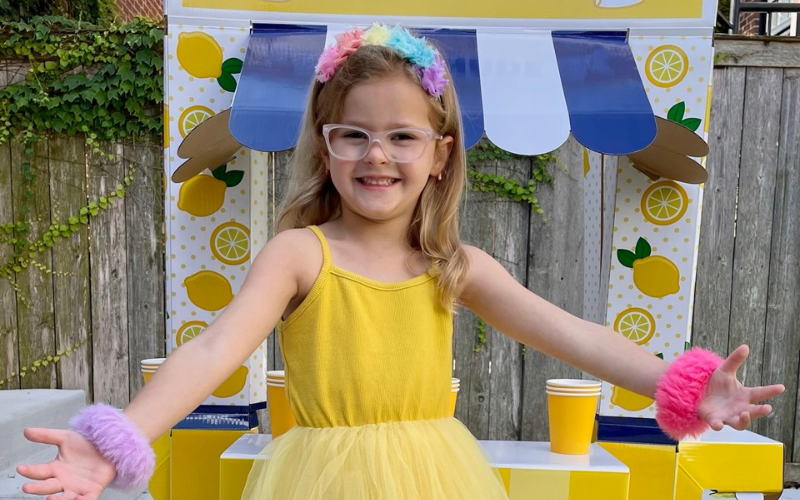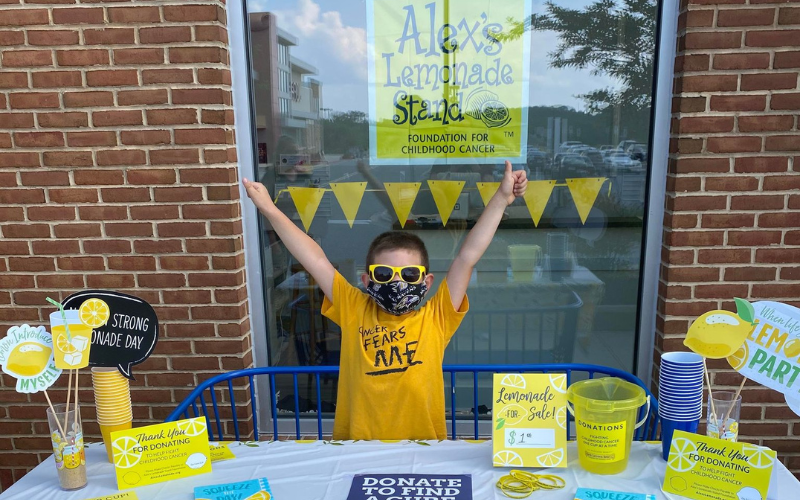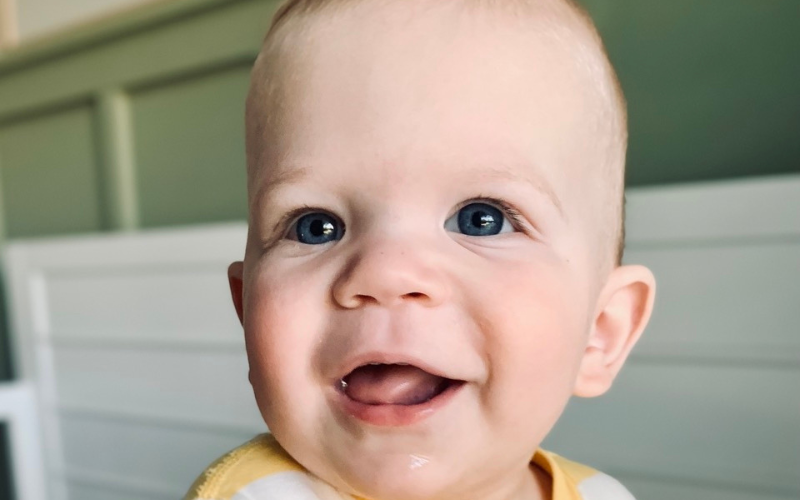By: Beth Shepherd
If you’ve never heard of retinoblastoma, you’re not alone. It’s a rare disease among rare diseases, with fewer than 300 kids diagnosed in the United States each year. In 2017, one of those kids was my daughter, Bernadette.
She was diagnosed early, on her second day in this world. We knew to look for retinoblastoma because her father was diagnosed with it in 1984 at 13 months old. A genetic test 30 years later confirmed our suspicion that his case of retinoblastoma was hereditary. Fast forward to today, Bernadette is 5 years old, obsessed with mermaids and cancer-free. We are grateful—both for the incredible care she has received, and for the foresight that genetic test gave our family.
Here are some quick facts on retinoblastoma:
- Retinoblastoma is a cancer of the eye and occurs when tumors form on the retina.
- Retinoblastoma occurs most often in children under 3.
- Many kids are diagnosed when someone notices a white glow on a kid’s eye in photos.
- The cure rate for retinoblastoma is over 95%, but treatment comes with risk and impact.
- 25-30% of children with retinoblastoma have a hereditary form of the disease, which means they have a 50% chance of passing it on to their children.
As someone married to a retinoblastoma survivor and a parent to a retinoblastoma survivor, it is this last fact that haunts me. In our family, we’ve already experienced childhood cancer in two generations—and we know it’s likely to keep coming generation after generation.
Impact of retinoblastoma
Even with early detection and a very high cure rate, retinoblastoma treatment can come with side effects. Despite decades of research and advancements in genetics, kids with retinoblastoma often endure chemotherapy, radiation, frequent anesthesia, vision loss, and more—all at a very young age.
Kids with hereditary retinoblastoma are also genetically predisposed to second cancers such as pineal gland tumors, osteosarcomas, and melanoma. Research shows 33% of them will experience a second cancer.
Looking to the next generation
What would you do if you knew this disease would come for your family again and again? As a group of families facing this tough truth, fundraising for retinoblastoma research starts the fight for our next retinoblastoma warriors now—years before they are even born. In collaboration with Alex’s Lemonade Stand Foundation (ALSF), we established a named fund that honors kids with retinoblastoma, their families, and hope for the future: The Foresight Fund for Retinoblastoma Research. ALSF will direct donations raised for this fund to research on retinoblastoma, specifically:
- Research on innovative approaches to preventing and treating retinoblastoma tumors
- Retinoblastoma genetics
- Retinoblastoma predisposition
Partnership with ALSF
By operating as a named fund within ALSF, retinoblastoma families from all over the world can come together to fundraise for research. Working through ALSF gives us access to a respected scientific advisory board, a large network of pediatric cancer researchers, fundraising tools, and a team that handles all the required administrative work of operating a non-profit and awarding grants.
Fundraising families can take part in ALSF large-scale events, such as Lemonade Days and The Million Mile, or host their own unique events with proceeds going to The Foresight Fund for Retinoblastoma Research. We are inspired by examples like the families of The CORD Fund, which has driven more than $1.4 million for spinal cord tumor research.
One of my daughter’s doctors recently reminded us that research can take years. We said, “We know, and we expect we’ll still be here, fighting retinoblastoma with the generations to come.”
ALSF Hero Funds
Interested in starting a fund to honor your childhood cancer hero? You and your friends and family can raise funds through a variety of events of your choosing and donate them directly to your Hero Fund. You can even request that ALSF use all donations to your Hero Fund to support a specific type of research if you choose. Learn more.




